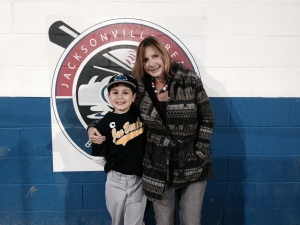Month: July 2014
How To Prepare For Job Interview: Getting Rid Of The Jitters
So, you’ve been out of work for a while and you finally have a job interview. Or maybe you’ve been on a few interviews already but are still a nervous wreck every time you have one?
I am probably the most terrified person EVER when it comes to interviews! Seriously, I probably look like a frightened rabbit! Being unemployed is scary, especially after unemployment benefits run out.
Are you nervous when you go to interview for a job?

Well, I’ve come up with a few tips to help you prepare for job interview and (hopefully) lessen those jitters.
If there aren’t many jobs in the field you’re qualified for it can be especially difficult, or there could be so many other people applying for the job. Before you know it….
Oh no, here it comes…
The FEAR sets in!
You might be thinking “What if I mess this up? What if I say the wrong thing? What if I sound like a blubbering fool?”, and the list of “what if’s” goes on and on.
If you’re anything like me you are WISHING so hard that you were one of those people who always seems to be calm, cool and confident no matter what. (By the way wishing does NOT make this happen!)

Not to mention you have to present yourself in the best light possible while you are a total MESS about your situation. I’ve been there, I am STILL there, and it’s quite frightening.
The tips here are meant to help you feel as good as you can about things no matter what happens. They won’t guarantee you’ll get the job, but hopefully they’ll help you to feel less “freaked out” before and during your interview.
Alright, so you’ve spoken to the recruiter or hiring manager and they’ve set up an interview date and time. You’re saying to yourself *YES, I’ve GOT this!”.
Then it’s the day before your interview and here comes the PANIC!
Suddenly you’re a wreck, can’t fall asleep, and are obsessing over the whole interview thing.
Here are my tips to help you get through this…..
Do the following the day BEFORE your interview:
Do your research on the company. Go to their website and read everything you can about them. Even if you’ve already done this, do it again so the information will be fresh in your head. They expect you to have some idea of what they’re all about.
If you’ve been told to bring copies of your resume then print them out and put them in a folder. Put the folder next to your car keys.
Prepare your questions for the employer. Yes, apparently us interviewees are supposed to ask questions, not any old questions though. (As if there wasn’t enough to worry about!).
Search Google to find the best questions to ask the employer during an interview then choose a few that you’re comfortable with.
I always bring a small notebook and a pen with me to interviews and I have my questions written in there and ready to ask. A notebook also comes in handy if you want to take any notes during your interview.
If you need your hair trimmed make an appointment for a few days prior to the interview if you can. I wouldn’t recommend a trim the day before (especially for women), because it’s best to be able to style your hair easily the day of the interview since you are trying to reduce stress.
I made this mistake once. I got a bang trim the day before an interview. The stylist did a bad job, so I had to spend tons of time trying to make my bangs look right for my interview…thankfully the interview was at 6 pm., so I had all day to figure it out!
Make sure your finger nails look good (this goes for men too!). Again, do this the day before so you aren’t stressed and rushing on the big day. Of course I have made the mistake of doing this on the day of the interview…not a good feeling.
As far as what you’ll be wearing goes make sure you’ve picked your clothing up from the dry cleaner if necessary or that you iron what you’ll be wearing the day before.
Also make sure what you’re wearing fits you properly too! Interviews can be far and few between, so when I DO get one I always double check ’cause you just never know!
Having things ready the day before can help you feel more confident and not so rushed. No need to add extra stress by waiting until the last second!
Now it’s the evening before the interview. Here it comes again…the nervousness and fear.
Here’s what NOT to do, and what TO DO instead:
DON’T start googling about interview questions and answers (do that earlier in the day), or applying for a bunch of other jobs.
You’re best bet is to actually stay away from the computer. Even if you’re just surfing the web for a distraction you could end up staying up too late.
DO watch some TV, preferably a comedy sitcom. At least you’ll laugh some and we all know laughter makes us feel better!
Some other options are to read a book or magazine, do some yoga or stretches, take a long bath or shower, go for a walk, etc. As long as whatever you’re doing is RELAXING.
The whole point is to be CALM, right?
DON’T stay up late obsessing! I tend to do this and it never works out well. Also don’t try falling asleep with the TV on, it’ll just wake you up in the middle of the night and then you might not be able to fall back to sleep.
DO get yourself to bed a earlier than usual. It might take a while to fall asleep, so you need to get a head start! Drink warm milk or Sleepy Time tea. Of course don’t drink alcohol, that won’t help you get a good night sleep. (A hangover just would not make a good impression, obviously!)
While laying there trying to fall asleep try to think of only pleasant, happy things (yes, a tropical island where you imagine you’re sipping Pina Coladas!). Do your best to NOT think about your upcoming interview.
I know, it’s so hard to NOT think about it, but do try to get it out of your head.
Now you’re awake and it’s interview day. Oh boy…
If you have time sit and relax with a cup of coffee or tea and watch the news. Make sure you eat a nutritious breakfast (you wouldn’t want your stomach growling at your interview!)
Time to get ready…

Allow yourself an extra 30 minutes to get yourself ready since you’ll be extra picky with how you look. Gotta make a good impression!
Arrive at the interview 15-20 minutes early. Be sure to allow extra time to get there too in case you take a wrong turn, etc. (Yes, this also has happened to me before).
It’s way less stressful to allow yourself plenty of time so you won’t be in a big tizzy trying to find the place.
When you arrive always remember that you’re being evaluated the minute you walk in the door. Do not panic about this, just smile (a genuine smile).
I totally understand that a genuine smile is a hard thing to muster up when you’re worried about how you’re going to pay the bills, so try thinking about how your smile could actually help solve that problem by helping you land the job.
Remember to make eye contact with the interviewer and not to use a lot of hand gestures. Answer all questions to the best of your ability and remember that the interviewer is just a person you’re having a conversation with.
Don’t forget to ask your interviewer the questions you wrote in your notebook. They seem to really like when you ask a few questions!
Although being interviewed can feel like torture the reality is that the very worst thing that can happen is you don’t get the job.
If that happens then think of it as practice for future interviews.
When you’re interview is over think about if you were very nervous at any point and try to work on ways to be less nervous for your next interview.
Once you get home, relax and give yourself a mental break.
As the saying goes “Practice makes Perfect!”.
Stressing over interviews does more harm than good, and is just not good for our health or our outlook.
All you can do is present yourself in the best way possible and hope for the best. A positive attitude and outlook will go a long way, no matter how rough things are at the moment.
Do you have any tips for easing the job interview jitters? If so please share with us by leaving a comment below!
Happy Interviewing,
Lori
Grandparents Raising Grandchildren And Love Have 6 Things In Common
What do Grandparents Raising Grandchildren and Love have in common?
Love applies to many different situations. You can love God, your spouse, family, children, friends, pets, and of course “things” (but we will not be going there with the material possessions!).
Love is a deep and enduring emotion, usually for another person close to our heart.
6 things Love and Grandparents Raising Grandchildren have in common:

Attachment: When we are “in love” or love someone we develop a great attachment to that person. I know in my case I am extremely attached to my grandson. He’s a part of me and part of everything I do.
Us grandparents become very attached to our grandchildren under any circumstances…..it’s just what we do!
So you can only imagine how attached we become when actually raising our grandchildren. (Yep, very deep attachment, VERY deep!)
Devotion is an intense love and an enduring loyalty to a person.
Us grandparents are very devoted to our grandchild(ren) and want to give them the best chance in life possible.
Do you have an intense love for your grandchild(ren)? I sure do!
Affection is and enduring fondness and tenderness for the person we love. When raising a grandchild a grandparent has a similar affection for their grandchild.
Adoration is to love intensely or deeply. Adoring your grandchild is pretty much a given if you’re raising a grandchild.
Tenderness having and/or expressing warm and affectionate feelings. Yes, grand “parenting” will bring out the tenderness in us!
Fondness is indulgent, doting. This is one that us grandparents are especially good at! (Warning! The indulgent part can be quite expensive if you’re not very careful!)
Falling “in love”

Falling in love involves feeling deep affection for another, which is how I feel about my grandson, and how I’m sure you all feel about your grandchildren.
How can we help but fall in love with our adorable, wonderful grandchildren?
And what a wonderful feeling it is to love up to and hug and cuddle a precious grandchild….
Love is NOT selfish!
Raising your grandchild is one of the most unselfish things you can do for your grandchild.
The love we give and receive when we are in this situation is a very special kind of love that is beyond anything we ever imagined.
And of course we’ve all heard the saying…
“Love is patient and kind”.
So what does all of this mean? It’s really quite simple…..
Grandparents are AWESOME! We are a great example of LOVE!
Lori
Positive Parenting Solutions: Does This Course Really Help?
I found Positive Parenting Solutions after writing one of my recent posts, “Are You a Yeller?“, and thought it would be interesting to give it a try to see if it really helped.

I’m always open to any good advice about raising kids, especially if it’s helpful enough to make me and my grandson’s lives happier.
All of the yelling, reminding and nagging…the stress of it all can really get to ALL parents at times.
Besides, if you’re a grandparent like me and raising your grandchild(ren), I think you’ll agree that we could use all the help we can get! Yes, we’ve raised children before, but it IS a little different nowadays, so it doesn’t hurt to be up to speed with things.

So what is Positive Parenting Solutions? It’s a parent education course that shows you different ways to handle situations and behaviors involving your children (and others!).
These small changes you make in your approach leads to a happier, healthier, less stressful outcome for both you and your child.
This course cover all ages from toddlers to teens – a HUGE plus!
What will this training cost you?
Positive Parenting Solutions offers a Free Quick Start Guide which includes parent education, as well as free webinars, and an awesome newsletter.
There is no obligation and no credit card required to receive the Free Quick Start Guide!
There are also 3 levels of paid Parent Education Courses…
GOLD level pricing is $29.95/month or a $299.00 one time payment. This is for lifetime course access and also includes coaching calls, forum, and mp3 course recordings.
SILVER level pricing is $24.95/month or a $249.00 one time payment. This is for lifetime course access.
BRONZE level pricing is $19.99/month or $199.00 one time payment, and is good for 1 year of course access.
The creator of this parent education program, Amy McCready, was featured on the Today Show, and in my opinion is extremely knowledgeable.
Keep reading to see WHY I’m convinced!
Does this REALLY help?
Well, I went through some of the parent education courses and actually learned a lot. But of course what I learned had to pass the “ultimate” test – trying it out on my grandson! Best way to find out if it’s something that works, right?
What I learned was to substitute the word “if” with the word “when“. For example, “When you are finished your homework then you can play your video game”, instead of saying “If you finish your homework you can play your video game”.
So what’s the difference? Well, when you use the word IF then what you’ve said sounds more like a bribe than if you use the word WHEN. If you re-read the sentences above you’ll actually see the difference!
Why does this matter? Well if you’re clear in what you say, and say it calmly then walk away (yes, I learned that too!), then your child knows that they have to complete what you’ve asked them to do before they can do what they want to do.
If they don’t do what you told them they need to do first then they don’t get to do the activity they REALLY wanted to do. (Warning: You HAVE to follow through on this to see results!)
This simple word switch actually prevents a possible power struggle (which ultimately leads to all that yelling, nagging stuff we’re trying to STOP doing!).
Did this work when I tried it out?
Amazingly enough it DID!
The downside to this is that it doesn’t work in every situation (yes, I started saying “When you do this or that” then there was nothing that made sense to come after that…I probably sounded ridiculous!lol).
The good thing is that you’ll be able to learn about other “tools” available to you for other situations you’ll encounter over your years of parenting.
Will you mess up and forget to use “when” instead of “if“? Yes you will, constantly! It takes practice but I can honestly say just that one little thing made a big difference (and avoided a bunch of bickering I’m sure!).
Should you try this? Well, it sure won’t hurt, and you’ll be very surprised how much it’ll help!
To access the Free Quick Start Guide and also receive a really great newsletter, which I also found very helpful just click here.
I hope you all enjoy this as much as I did! Please let me know what you think and if the tips work for you too!
Lori
Mario’s Adventure: A Visit With A Baby Tiger!

This was such an exciting Day!
Mario got to spend 15 minutes with a baby tiger last summer (July 2013).
And ironically the baby tiger’s name is Summer!
There was a charity event in St. Augustine, FL and we were invited by a friend who had reserved a 15 minute visit with Summer for Mario.
Summer was 10 weeks old when we met her…
It was possibly a once in a lifetime experience, not only for Mario but for ME too…It was awesome to actually pet a REAL tiger!
Mario really loved spending time with Summer! I love seeing his face light up with amazement…
Here’s a short video I made of Mario’s visit with Summer to share with you all- Enjoy!
Also check out this article to read some myths about tigers. I didn’t know some of these, very interesting!
And….
Isn’t Summer adorable?
Lori
Kids Receive Many Benefits Playing Sports
What’s the first thing that pops into your mind when you think of the benefits of playing sports? Most likely it would be being physically fit, right? Of course this is true!

I’m sure you’d agree that being active and playing sports is very healthy for our kids bodies. Also, if children start playing sports at an early age they’ll have stronger bones and muscles as they get older, which is important for as they get older.
So, not only does your child get a full-body workout, they also develop a good habit that’s likely to last a lifetime.
Exercise for our child is so important and sure beats sitting in front of a TV or playing video games all day while eating a bunch of snacks!
And to make it even better….
There are MANY other benefits of playing sports!
Being a good sport, win or lose

Remember when your child was younger and you were all excited when he/she was finally old enough to play board games? (Or is that just me?!) So you rush to get out a game and you start playing with your child only to have tantrums or upset ruin the whole game! Yes, your child is “off the wall” upset because YOU are winning! Even if you’re in the middle of the game and it looks to him/her as if you MIGHT win, you would think it was the end of the world by their reaction!
This went on with my grandson Mario until he was 8 (he’s 8 1/2 now). I bought tons of board and card games over the years and I was so disappointed that we couldn’t seem to ever get through a game….
So, Mario started playing on his first basketball team when he was 7 and he was so upset whenever his team lost. He played again when he was 8, and STILL got very upset when his team lost.
Then he started playing baseball. In the beginning it was the same old thing when his team didn’t win, but at some point during the baseball season, he suddenly “got it”.
You know, the part where it doesn’t matter if you win or lose, it’s how you play the game. He even started complimenting players from the other teams on their game!
This was a HUGE turning point for him!
Mario’s a very good player, he is a “natural” at sports (nope, he does not take after me, I’m quite clutzy!), and I’m thrilled that now he knows it’s okay to get out there and try your best, win or lose.
And YES, I’m beyond excited that now we finally can play games together at home and have FUN!
Emotional Benefits
Even our little ones can feel anxious or depressed at times. Learning new skills and putting their physical energy into sports can help so much with keeping any child’s anxiety and depression under control.
Think about it, when you’re busy learning and getting a work out your mind is occupied AND you’re using up physical energy which stimulates the “feel good” center of your brain.
Same thing goes for kids!
So I say…let ’em go crazy and get that energy going!
Social Benefits
 Playing sports gives your child a chance to learn how to work with others.
Playing sports gives your child a chance to learn how to work with others.
Your child will belong to a team that has to work together toward achieving a goal (no pun intended!). Therefore, of course, your child will learn teamwork!
By being a part of a team your child also learns cooperation (yes, we ALL want our children to learn that one!), and leadership skills.
Participating in sports also teaches children how to be patient and that they must take turns. (I love this because then us parents get help from coaches with teaching our kids patience!)
All GREAT things we all want our child to know and learn!
Knowledge
My grandson LOVES sports! He is actually a little “sports fanatic” (apparently a goal of his!). He’s constantly either watching Sports Center on TV or outside playing with a baseball, football or basketball. Not to mention swimming, riding his bike and many other “sporty” kinds of things!
Mario will ask his coach a million questions, and practice on his own time. He will actually practice with anyone he can find at any given time. He wants to know it ALL!
It’s amazing to me that he can actually have an intelligent conversation with adults about the teams and players of all of these sports.
Make new friends
Playing sports is a great way for your child to make new friends. What’s better than having good friends who have the same interest as you? These friendships could also help your child develop more interests in other areas such as art, music, reading, etc…

I’ve also found from my own experience, especially with baseball, that I’ve also made new friends. There were lots of 2 hour practices and then of course the games, so you spend lots of time with the other parents. I really loved it, baseball was a ton of fun for me too!
What if my child isn’t into sports?
Of course every child is different and there are many who aren’t interested in sports. Or maybe your child prefers individual type sports such as swimming, track, ballet etc… Maybe your child is a great chess player, or debater. Any hobby or passion your child is interested in is always wonderful!
But it is definitely beneficial to your child’s health to include physical activity every day in some way, shape or form.
I think it’s awesome that there are kids out there who develop a passion for sports and want to learn all there is to learn. Actually their passion could be for just about anything! (legal and moral of course!)
Our passions define us as we grow, and a thirst for knowledge about the good things in life that are important to us is such a wonderful benefit!
Can you think of more benefits our kids receive playing sports? Please share your thoughts with us!
Lori
Are You A Yeller? How And Why To Stop Yelling At The Kids
Are you a yeller? I hate to admit it, but I’m a yeller. Not all the time, but enough that it bothers me. Many of us are “yellers” whether we’re younger or older parents. As far as raising grandchildren maybe we tend to lose patience more easily as we get older?
I know for sure I had more patience and yelled at the kids a lot less when I was younger. Now I struggle with having patience and not yelling. Does this sound like you?

Well, I decided I didn’t WANT to be a “yeller” anymore. If you are raising your granchild(ren), or any child for that matter, and tend to yell then you really need to find ways to stop. Yelling causes everyone, adults and children, a lot of unnecessary pain and hurt.
No one feels good while they are yelling or when they’re being yelled at. Yelling is harmful to children, it scares them!
Think about it. Wouldn’t you find it scary if someone so much bigger than you was screaming at you? Definitely scary stuff to a child.
I know that I certainly don’t like being yelled at, so if I don’t like being treated that way then what gives me the right to treat my child that way?
You’re the adult and you are responsible for managing your emotions, and it’s up to you to teach your child how to manage theirs.
Kids learn what they know from US. If you’re constantly screaming at them they’ll learn to scream at you. If you show them empathy,they’ll learn empathy. And so on….
Why do we yell?
Well, maybe you’ve had a bad day and everything is just getting to you? For me, if I’m under a lot of pressure and feeling stressed I tend to yell more. Or maybe your child isn’t being a good listener at the moment or doing as they’re told? And the list goes on and on…
Maybe we should stop to consider that children also can have a “bad day” just like us, or something could be bothering them, or they could just be testing the limits as children tend to do?
I know that when I end up yelling it’s not something that I’m doing to deliberately hurt my grandchild, it’s a reaction I’m having.
Of course you don’t want to walk around feeling angry and yelling, so it’s not something you do on purpose, it just kind of happens. Maybe it even becomes a bit of a habit?
Whatever our reasons might be, screaming just isn’t a healthy way to handle things. Children have feelings too and we need to show them that we respect their feelings.
How is yelling harmful to children?
As I mentioned above, children become afraid when you’re yelling and screaming at them. If you yell often enough they’re likely stop listening to you until you start yelling. It’s sad that they’ve come to expect that behavior from you and being yelled at it what they’re used to.
Your child is also more likely to back away from you emotionally and develop a defiant attitude as they get older.
Another problem that can develop is that your child might more easily cave into peer pressure. None of us wants that to happen!
Do YOU feel secure and valued if you’re screamed at a lot by someone you love?
As parents or grandparents raising children we need to be more aware of the effects of yelling at our kids. It’s up to us to provide a stable, loving environment where our child isn’t afraid to come to us and feels loved for him or herself.
So how do we break the “yelling” cycle? Here are some ideas that work..
Give yourself an “Adult” time-out! This actually works wonders! Just remove yourself and go into another room, sit down, take some deep breaths. Scream into a pillow, cry, whatever it takes!
When you feel you’re ready to deal with the situation without yelling then you can come out and have a conversation with your child or grandchild, without “losing it”.
If a child is very young then you could put him/her in the crib or ask another adult (if possible) if they could just sit with the child for a short period of time until you’re calm.
I just practiced this one tonight. My grandson gets so overly excited and a little on the wild side when he has a friend sleeping over.
It seems that anything I’m saying to him is being totally ignored. If I’m telling him not to do something you can bet that the next minute he’s doing what I said not to do.
So….I went to my bedroom for an “adult” time-out. It was only a very short time out, but it worked! When I came back from my time-out I talked with my grandson calmly and things were fine after that.
If you are in the middle of yelling just STOP, take a deep breath and remove yourself until you are calmer. (See “Adult” time-out above!).

Understand your child/grandchild. If children feel understood it is easier for them to learn to manage their emotions, and their behavior.
So how about asking them what they’re thinking or why they think they might be behaving a certain way?
Maybe it’s just been a bad day or they’re feeling like they need more attention, or a friend hurt their feelings, etc.
We need to set an example for them. We need to acknowledge their feelings, and show understanding. If you’re concentrating on communicating with your child you’ll be surprised at how quickly the urge to yell passes.
Listening goes a long way. Listening helps you to understand what’s really going on with your child. This is one of the best things you can do instead of yelling. You’ll never know what’s going on with your child if you don’t take the time and dig deeper to find out.
Your child could be needing more of your attention, or could be really sorry for accidentally breaking something or for whatever reason you were yelling about.
You won’t know unless you listen!
Admit you are wrong. If you do lose your temper and scream and yell make it a point to apologize to your child or grandchild. Tell him/her that you shouldn’t have screamed and that you’re very sorry.
Let your child know that you’re working on stopping this behavior. Saying “I’m sorry” shows a child that you are willing to admit when you are wrong and and also that you really mean what you say about taking steps to change.
This is a very important life lesson for them!
This DOESN’T mean that children should “get away” with bad behavior. You still need to follow through with consequences for their actions if the situation warrants it.
The point is you can do this in a calmer way.

Also, don’t expect to just totally stop yelling instantly. The whole process will be very hard and challenging!
You WILL mess up a lot, but as long as you keep trying it WILL get easier and easier.
You’ll start seeing a huge difference in your child and you’ll both be so much happier! So don’t be too hard on yourself if you catch yourself yelling sometimes, just say “I’m sorry I yelled”, and keep trying to stop!
I want to set a good example for my grandson, and I’m sure you all want to do the same for your children!
Do you have any tips for us on how to stop yelling so much? If you do please share them with us!
Lori


